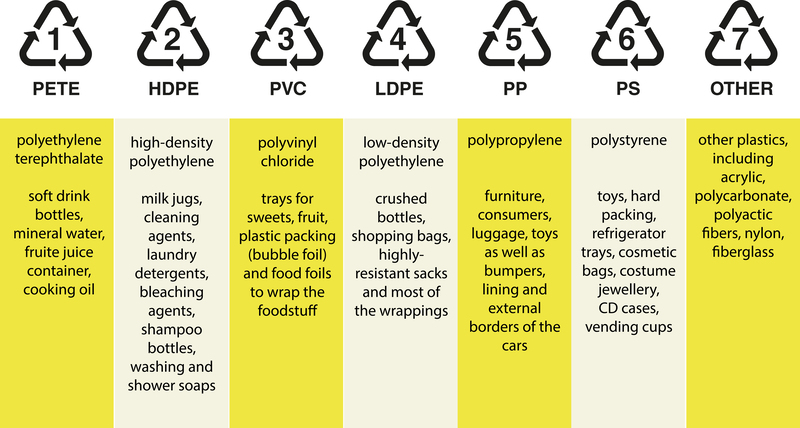Tips for Eco-Conscious PPE Waste Management
The rise of personal protective equipment (PPE) during health crises, pandemics, and in general industries has led to a surge in waste. While such equipment is essential for safety, improper disposal can harm the environment. This comprehensive guide provides valuable eco-friendly PPE waste management tips to help individuals, businesses, and organizations reduce their environmental impact without compromising safety.

Why Is Sustainable PPE Waste Management Important?
The COVID-19 pandemic highlighted the critical role of PPE--such as masks, gloves, and gowns--in protecting health and lives. However, the huge surge in single-use PPE has resulted in mountains of waste, much of which ends up in landfills or oceans. This not only contributes to pollution but also poses a threat to wildlife and ecosystems. Adopting eco-conscious PPE waste management strategies ensures that we balance our need for safety with our responsibility to the planet.
Understanding PPE Waste
Before implementing sustainable waste practices, it is essential to understand what constitutes PPE waste:
- Masks--Disposable surgical or N95 types
- Gloves--Latex, nitrile, and vinyl gloves
- Face shields & goggles
- Gowns & aprons
- Shoe covers, hair covers
While many of these items are single-use, some can be reused or recycled under strict protocols. The key is to identify the safest and most sustainable options.
The Eco-Conscious Approach: General Principles
To ensure environmentally-friendly PPE disposal, consider these general principles:
- Reduce: Minimize the use of disposable PPE when safe and possible.
- Reuse: Opt for reusable PPE when appropriate and safe.
- Recycle: Use recycling programs suitable for PPE materials.
- Educate: Train employees and community members about sustainable PPE waste practices.
- Innovate: Explore new materials and technologies for sustainable PPE.
Top Tips for Eco-Friendly PPE Waste Management
1. Minimize Single-Use PPE Where Possible
Not all tasks require disposable PPE. Assess the requirements of your industry or workplace. For example:
- Use washable cloth masks for daily community interaction instead of single-use ones.
- Encourage proper handwashing to reduce reliance on gloves.
- Where safe, opt for reusable gowns and aprons that can be laundered.
Reducing single-use PPE both cuts down on waste and can lower costs in the long term.
2. Choose Reusable and Sustainable PPE Options
Many manufacturers now offer sustainable PPE alternatives. Look for:
- PPE made from recycled materials or bio-based plastics
- Face shields and goggles designed for sterilization and reuse
- Reusable masks with replaceable filters
Investing in eco-friendly PPE can drastically reduce your overall waste footprint.
3. Proper Segregation of PPE Waste
For eco-conscious PPE disposal, accurately sort and segregate waste:
- Contaminated PPE (e.g., exposed to biohazards): Dispose in designated biohazard bins.
- Non-contaminated PPE: Collect separately and explore recycling or energy recovery options.
- Label bins clearly and place them conveniently to ensure compliance.
Proper segregation reduces the risk of contamination and makes recycling feasible.
4. Use PPE-Specific Recycling Schemes
Standard recycling facilities may not process PPE waste effectively due to contamination concerns. Instead:
- Partner with specialized recycling companies that handle mask and glove recycling.
- Engage in manufacturer take-back programs for used PPE.
- Support community recycling initiatives for PPE.
Some companies use advanced processes to recycle PPE into plastic pellets that can be repurposed for other products, like construction materials or park benches.
5. Educate Employees and the Community
For effective eco-conscious PPE waste management, education is vital. Make sure everyone understands:
- The environmental impact of improper PPE disposal
- Where and how to dispose of or recycle PPE safely
- The benefits of using sustainable PPE alternatives
Utilize posters, digital campaigns, and in-person briefings to maximize awareness and compliance.
6. Implement a PPE Waste Audit
Conduct regular waste audits to monitor PPE usage and disposal practices:
- Track the volume of different PPE waste streams
- Identify opportunities for reduction or recycling
- Adjust procurement and usage policies based on data
Audits can highlight inefficiencies and encourage sustainability-driven changes.
7. Support Innovations in PPE
The demand for eco-friendly PPE has fostered innovation:
- Biodegradable masks and gloves
- PPE made from compostable bioplastics
- Advanced sterilization technologies for safe reuse
By supporting or investing in such products, you actively contribute to sustainable waste management.
Common Challenges in Sustainable PPE Waste Management
While the tips above are actionable, you may encounter challenges such as:
- Contamination Risks: Mixing contaminated and non-contaminated PPE could be a health hazard
- Lack of Recycling Infrastructure: Not all regions have facilities for PPE recycling
- Higher Initial Costs: Eco-friendly PPE may cost more upfront than single-use versions
Despite these challenges, many organizations have demonstrated success with strategic planning, staff training, and investment in proper waste management systems.
Benefits of Eco-Conscious PPE Waste Management
Implementing sustainable PPE waste disposal yields several advantages, including:
- Environmental Protection: Reduces landfill waste and ocean pollution
- Cost Savings: Long-term savings by reducing disposal and procurement costs
- Regulatory Compliance: Meets growing legal and industry standards
- Improved Public Image: Demonstrates corporate responsibility and environmental stewardship
These benefits extend beyond compliance, contributing to a healthier planet and improved business reputation.
Case Studies: Effective Eco-Friendly PPE Waste Solutions
Hospitals Setting the Standard
Some hospitals have successfully introduced reusable PPE and collection bins for non-contaminated masks and gloves. Partnering with recycling firms, they've transformed PPE waste into new raw materials for industrial use, reducing their overall carbon footprint.
Community Recycling Programs
Municipal initiatives in certain cities allow residents to drop off clean masks at designated locations. These programs work with innovators in the recycling sector to process PPE waste safely and sustainably.
Actionable Checklist for Eco-Conscious PPE Waste Management
- Assess your PPE usage and identify reduction opportunities
- Switch to reusable and sustainable PPE wherever possible
- Segregate PPE waste at source--separate contaminated and non-contaminated items
- Enroll in or establish PPE-specific recycling programs
- Make education and training an ongoing priority
- Conduct waste audits regularly to spot trends and opportunities
- Stay updated with and support the latest sustainable PPE innovations

FAQs: Sustainable PPE Waste Management
-
Can all PPE be recycled?
Most traditional PPE is difficult to recycle due to contamination and material composition. However, specialized programs can process some items. -
What happens to recycled PPE?
Recycled PPE is often turned into plastic pellets, which are then used to create products like furniture, construction materials, or other consumer goods. -
Are reusable masks as safe as disposable ones?
When properly cared for, high-quality reusable masks can offer similar protection in non-clinical settings. -
Is eco-friendly PPE more expensive?
While the initial cost may be higher, savings are realized through reduced procurement and disposal expenses.
Conclusion: Embracing Eco-Conscious PPE Waste Practices
Eco-conscious PPE waste management is essential to safeguarding both public health and the environment. By reducing single-use PPE, choosing sustainable options, and establishing robust waste segregation and recycling systems, you play a pivotal role in combating the growing waste crisis. Empower your organization and community by making eco-friendly PPE disposal a core policy and inspiring others to follow suit. Even small changes, when adopted widely, can lead to significant positive outcomes for our planet's future.
